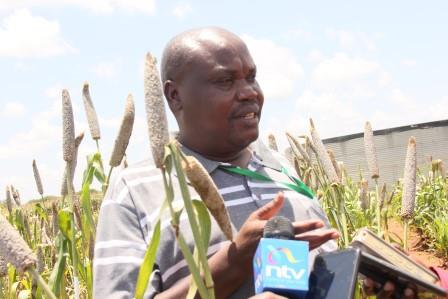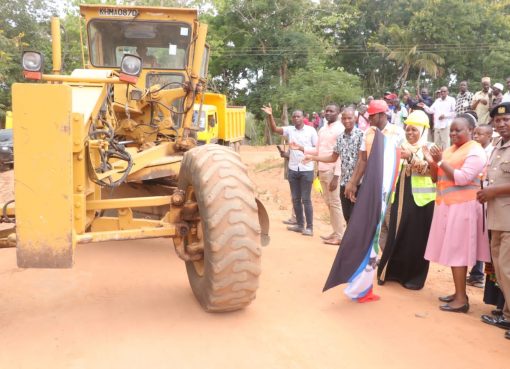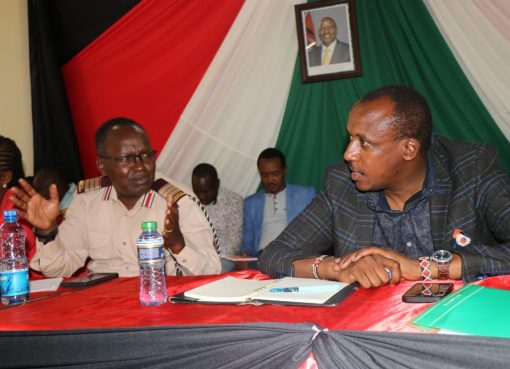International Crops Research Institute for the Semi-Arid Tropics (ICRISAT) has developed new parental hybrid lines for sorghum and pearl millet expected to increase yields by over 70 percent among smallholder farmers.
ICRISAT Regional Director for East and South Africa Dr. Eric Manyasa said despite Kenya’s high potential for sorghum and pearl millet production, lack of a viable hybrid seed production system and crop management remains a handicap.
Dr. Manyasa said more than 200 parental lines (A/ B pairs) for sorghum had been developed at the Kenya Agricultural and Livestock Research Organisation (KALRO) at Kiboko station in Makindu to address the gap, while a further 100 pairs are on the pipeline.
Similarly, 500 lines for pearl millet have been established while an additional 1,500 lines are under progress.
Parental lines consist of two genetically different seeds-male and female that produce a hybrid-which is more fruitful and resilient.
The A line is the female parent while the male parent is called the R line.

The A line is male sterile is sown alternatively on the same plot with the B line to help maintain the A line male sterility.
The R line is grown is an isolation field away from other sorghum fields.
During hybrid seed production, the R line is cross pollinated with the A line to produce a hybrid seed.
Dr. Manyasa said the hybrid parents developed by ICRISAT will be used by seed manufacturers in Kenya and the East Africa region to produce a greater volume of hybrid seeds and sell them to farmers at affordable costs to boost production.
He said the varieties developed are drought resistant, early maturing and have a good grain quality for multiple purposes.
“The demand for sorghum in growing especially for food and brewing purposes and it is crucial to have hybrid varieties just like maize to boost production,” said the director.
Dr. Manyasa also noted that with the current climate changes, there is a need for farmers to plant resilient crops like sorghum, millet and other traditional value crops that do well with minimal rainfall.
He said such crops will help Kenya achieve its big four agenda on food and nutrition security.
“High potential areas are dwindling due to urbanisation leaving less marginal areas for food production, however there is need to plant the right crops and varieties to avoid successive crop failure as witnessed in some areas like Makueni,” added the director.

Dr. Manyasa also called for a change in attitude towards the consumption of traditional value crops that are mainly regarded as ‘poor man’s food’.
“These foods are highly nutritious and very rich in minerals like zinc, iron and calcium. They also prevent lifestyle diseases like diabetes and it’s the high time people replace processed foods with sorghum, millet and other traditional foods,” he noted.
The director disclosed that the initiative to develop a hybrid seed system started three years ago through a hybrid parents research consortium for East and South Africa-a public and private partnership- to build seed industry for the supply of higher performing hybrids to small holder farmers.
He was speaking at KALRO -Kiboko during a field day where a delegation of seed manufacturers toured the site for selection of hybrid parents.
Some of the seed companies and breeders present during the field day included Nile Sun Seed (Sudan), Kenya Seed, Tanzania Agricultural Research Organization and the National Agricultural Research Organization (Uganda).
Dr. Henry Ojulong, a pearl millet breeder at ICRISAT, said the initiative is the first of its kind and is aimed at establishing mechanisms for a quality pearl millet crop.
Dr. Ojulong said seed manufacturers will be able to access the hybrid parents and select what is available at the site every two years.
“Pearl millet is a hardy crop that can survive under minimal rain conditions of 250mm.They also take 45 days to mature,” he said.
Managing Director Nile Seed Company Limited in Sudan, Zubeir Ibrahim said sorghum is a staple crop in Sudan.
Ibrahim said due to its increasing demand farmers would want to use certified seed for more yield.
He said some of the traits that the seed company would be looking for include grain size and quality, yield and average height.
“We would prefer a variety that is around 120 centimetres tall and green forage and there is definitely good material at the site,” said the managing director.
By Roselyne Kavoo





